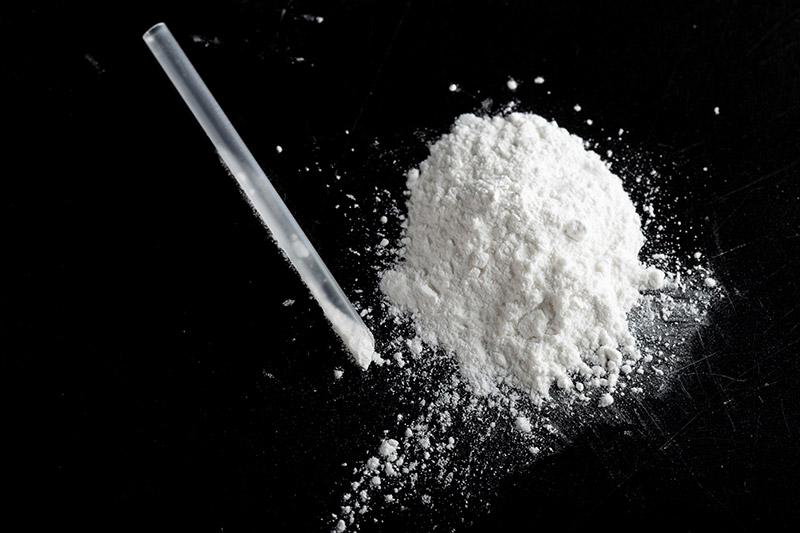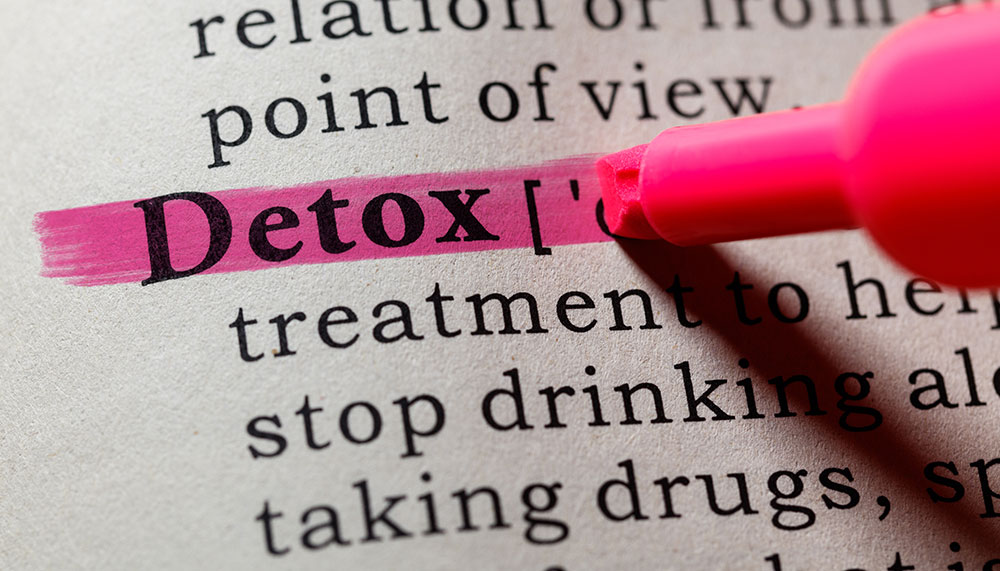Ketamine Detox & Withdrawal
Ketamine addiction is a challenging condition to overcome, but with treatment, it can be managed. You may be concerned about the potential effects detox and withdrawal from ketamine may have on you, or you have tried to stop in the past and been unable to.
Understanding the different phases you will be going through on your journey to sobriety will help you to prepare mentally and physically for what you may experience.
What is a Ketamine Detox?
Once your body has started the elimination process following your final dose, you may start to experience withdrawal symptoms as your brain starts to acclimatise to not having ketamines anesthetic and pain-numbing effects.
Ketamine would be eliminated from your system in 2 – 4 days dependant on your metabolism, as the elimination process completes, you may find your symptoms intensify especially your craving.
This is when you will need emotional and medical support to help ease your discomfort and lower the risk for relapse.

What is Ketamine Withdrawal?
Once your body has started the elimination process following your final dose, you may start to experience withdrawal symptoms as your brain starts to acclimatise to not having ketamines anesthetic and pain-numbing effects.
Ketamine would be eliminated from your system in 2 – 4 days dependant on your metabolism, as the elimination process completes, you may find your symptoms intensify especially your craving.
This is when you will need emotional and medical support to help ease your discomfort and lower the risk for relapse.
Ketamine Withdrawal Symptoms & Timeline
Whilst the effects of ketamine is mostly mental, there are withdrawal symptoms that you may experience:
- Cravings. – Are worst after day 2 and can continue for months but will have decreased in intensity within 14 days
- Shakiness
- Excessive sweating
- Irregular heartbeat
- Anxiety
- Depression
- Blood pressure changes
- Dizziness
- Nausea, Diarrhea, and vomiting
- Muscle tension
- Headaches
Not every person may experience all these symptoms and you may experience ones that are not listed. A medically supervised detox where you are continually assessed and monitored will help to ease your discomfort. Having a dual diagnosis (mix of mental health issues plus addiction) can complicate your withdrawal especially as depression and anxiety, are normal during withdrawal.

How Long Does Ketamine Stay in Your System?
Ketamine is a short-acting medication and is generally eliminated in 2-4 days through your urine. This is dependent on consumption and regularity of use.
(https://www.narcocheck.com/en/urine-drug-tests/ketamine-test.html)
How to Undergo a Ketamine Detox
The first step in choosing to stop using ketamine is to contact your GP, they will be able to do a medical and risk assessment to try to ascertain the best detox treatment plan for you.
Whilst there is no right or wrong choice, if you are feeling doubtful about your ability to self-detox and stay sober or aren’t comfortable talking to your GP about your ketamine use, you can contact us and we’ll be happy to support you in finding the right detox programme for you.
Home Ketamine Detox
You may choose to proceed with your detox at home, in this instance, having contact with your GP will help facilitate your treatment as an outpatient.
The Pros and Cons of Detoxing from Ketamine at Home
Pros:
- Cheaper than private facilities
- Less time off work
- Recovery in a familiar environment
- Loved ones can provide care for you
- You are not restricted by rules, such as TV allowance time, smoke breaks, etc
- Privacy
Cons:
- Contact with trigger situations
- Having to continue with your day to day responsibilities whilst also experiencing withdrawals
- Medical needs arent assessed and monitored 24/7
- You won’t have the same access to support as those offered by residential detox & rehab programmes
- Risk of dehydration

Medically Assisted Ketamine Detox
A residential detox programme is a private service where you would remain in residence for the duration of your treatment away from stress, your day-to-day responsibilities, and without access to ketamine.
Delivered in a supportive and holistic environment, residential detox aims to make your detox and withdrawal phase more comfortable and where necessary offer medicines to ease your symptoms.
The Benefits of a Medically Assisted Ketamine Detox:
- No waiting periods for receiving treatment within a private facility
- Alleviating physical suffering.
- Ensuring your body’s safe transition to a toxin-free state
- Reducing mental and physical withdrawal symptoms.
- Providing extra nutrients and vitamins to supplement your body
- 24/7 assistance through the detox process as well as supportive care during and after your stay to help you maintain your sobriety.
Although some treatment centres can provide a supervised detox, a medically assisted detox can be included as part of a residential rehab programme where a holistic treatment plan is developed with beneficial health-oriented activities incorporated, such as, balanced diets, exercise including yoga, medication, and individualised healthcare that aims to restore your physical, mental, and spiritual connection as well as:
- Teaching you coping strategies to minimise and manage your cravings
- Keeping you motivated
- Getting your loved ones involved in family therapy sessions that strengthen the whole family as a tool against relapse
- Introducing you to the 12 steps programme and a community support group
How to Cope with Ketamine Withdrawal
There are very few physical withdrawal symptoms with ketamine, so ketamine addiction is often known as psychological dependence. But that doesn’t mean that you won’t need some help to ensure your sobriety.

Take Time Off Work
Whether you decide to try detoxing at home or an inpatient facility, having some time away from work during and after your detox will be beneficial, as initially, you may be feeling moody, fatigued, and depressed so take some time to take care of yourself as your body and brain heal.
Remove Ketamine Paraphernalia
Staying away from any triggers that may influence your relapse is crucial, start by removing any evidence of your addiction, get rid of any leftover packaging/packets, etc to limit the need to re-use and relapse.
Stay Away from Weekend Benders
Part of your recovery will be to stay away from the environments that were conducive to your use, don’t associate with the ‘friends’ you used to ‘party’ with, or the parties or social events you used to frequent especially where ketamine was easily available.
Eat Healthy & Exercise
The better you start to feel healthwise, as your body recovers and the more your appearance starts to improve, the better you will feel mentally and consistently choosing healthier options will keep you from relapsing or falling back into unhealthy habits.
Keep Busy
Try and remember what used to bring you joy, try out new hobbies, anything that can keep you occupied and your mind too occupied to think about ketamine.
Talk to Friends & Family
One of the biggest losses during any addiction is the loss of trust, support, and love from family and friends, yet this is the very best support base you can have during your recovery. Nurture those relationships now, show your family and friends that you are consistently committed to your recovery.
Remind Yourself Daily the Reasons You’re Quitting
Staying sober is a daily commitment, try keeping a diary to help remind yourself of all you have accomplished each day without the numbing effects of ketamine, and also to re-affirm your commitment to staying sober. Keep a daily journal and ‘Journal your Journey.
Preventing a Relapse
As with any substance use detox and recovery treatment, the withdrawal symptoms coupled with the re-emergence of any psychological or physical ailments that led you to use ketamine, make a relapse possible.
The aim of your continued recovery after detox is the prevention of relapse, this can be achieved through a few avenues to extend your sobriety:
Sleep
Ensure you receive adequate sleep to allow your body to recover physically as well as giving yourself a chance to recover mentally from your addiction.
If you are battling to sleep, speak to your treatment centre or medical professional for help.
Treating the Underlying Causes of Ketamine
DependencyDespite the clear benefits in promoting early sobriety, it’s important to realize that your detox is not the only step to getting and staying clean; it is the first. Once this process is complete, the real work of recovery can begin.
Treatment for ketamine abuse works better with long-term maintenance therapy that includes supportive medications along with some form of counselling or behavioural therapy. In other words, it must treat the damaging effects of ketamine abuse on your body and mind as well as also helping you learn how to build a new drug-free life, sometimes from the ground up, when addiction has destroyed everything.
Residential Rehab
During residential treatment, you will have access to a therapist daily or weekly. The therapist will help you look at the nature of your addiction and assess whether pre-existing mental health conditions, hereditary factors, or trauma are contributing to your dependence.
You will also have the opportunity to receive your treatment holistically where your rehabilitation plan is developed around you as a whole, to help change the habits you have formed into new more beneficial, and healthier ones for once you have left rehab.
Choosing a residential treatment centre is a safe place to start your recovery, starting with a medically assisted and supervised detox, you will have 24/7 care and assistance to help ease the uncomfortable withdrawal symptoms you may experience.
Outpatient Services
Options include
- Individual & group motivational therapy
- Relapse prevention therapy
- mutual aid (support group) such as Narcotics Anonymous (https://ukna.org/)
The NHS has options in every local area that can help you with support during treatment, NHS Choices(https://digital.nhs.uk/) maintains a searchable directory of local drug treatment services.
Whilst the NHS has options in every local area that can help you with free support during treatment, there are often waiting lists to join an NHS outpatient treatment service, so if you require immediate admission please reach out to us on 0333 4444 432 and we will assist with finding you a private treatment facility in your area.
Support Groups
The underlying psychological causes for your addiction – childhood trauma, dual diagnosis (anxiety), etc – can be treated with ongoing therapy, and there is a benefit to sharing your journey within a group setting – NA or other mutual aid (support group) organisations – The UK Public Health has issued guidelines detailing the benefits – https://assets.publishing.service.gov.uk/government/uploads/system/uploads/attachment_data/file/669047/Mutual-aid-briefing.pdf)
SMART Recovery UK, is a free, nonprofit, Self Management and Recovery Training programme available to help assist in the recovery process of addiction.
The SMART Recovery approach to recovery is summarised in the Four-Point program.
SMART Recovery teaches how to:
- Enhance and maintain motivation to abstain
- Cope with urges
- Manage thoughts, feelings, and behaviors
- Balance momentary and enduring satisfactions
(https://www.smartrecovery.org/about-us/frequently-asked-questions/)
Frequently Asked Questions
1 to 2 days for occasional consumption.
3 to 4 days for higher intakes.
(https://www.narcocheck.com/en/urine-drug-tests/ketamine-test.html)
